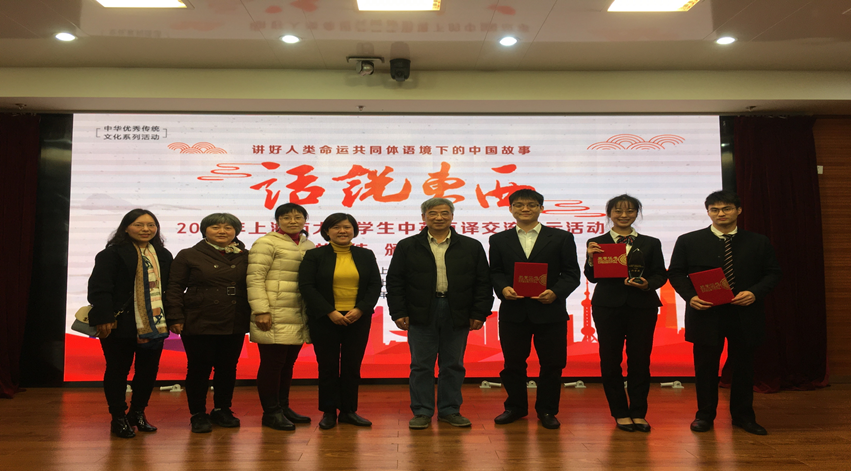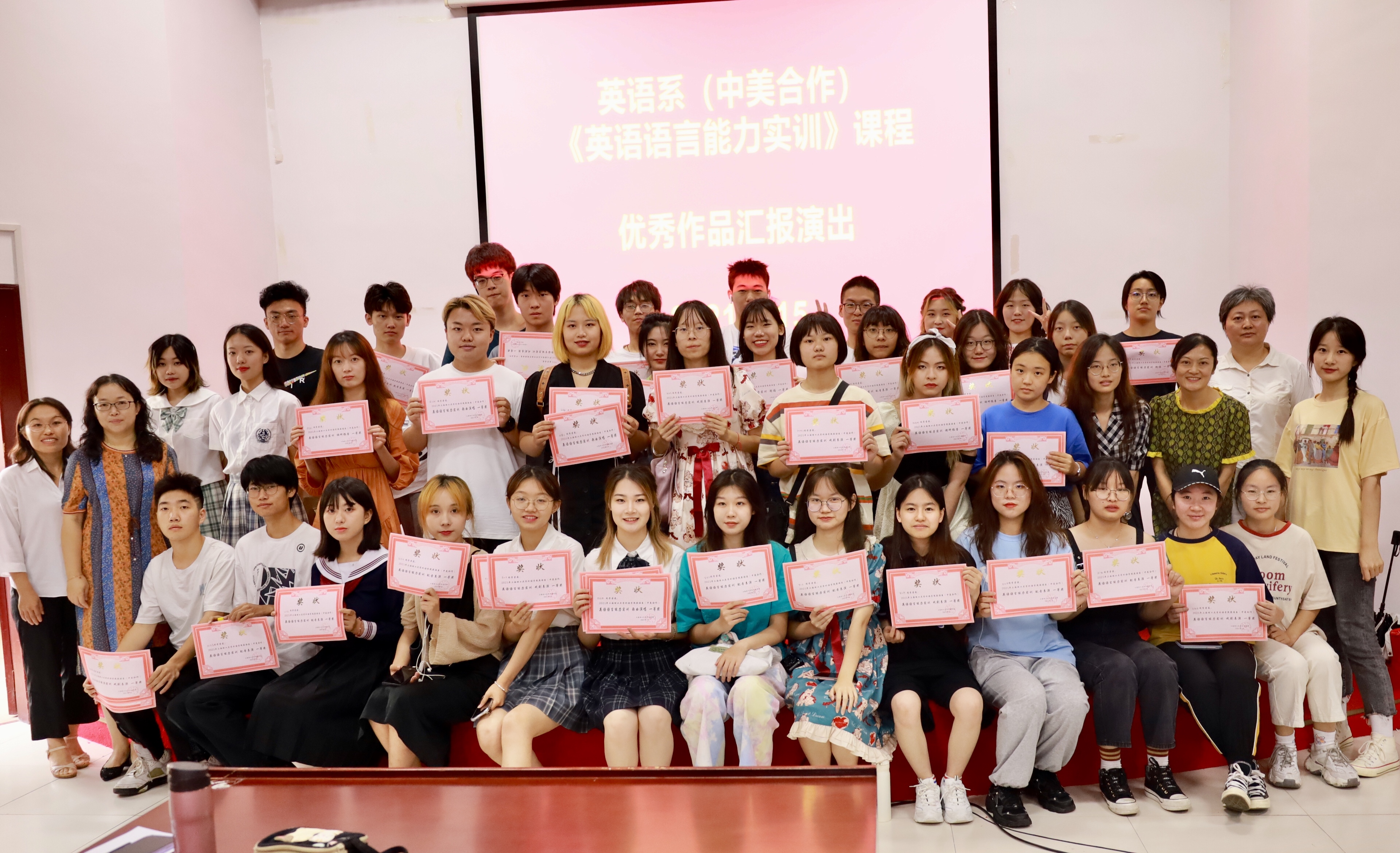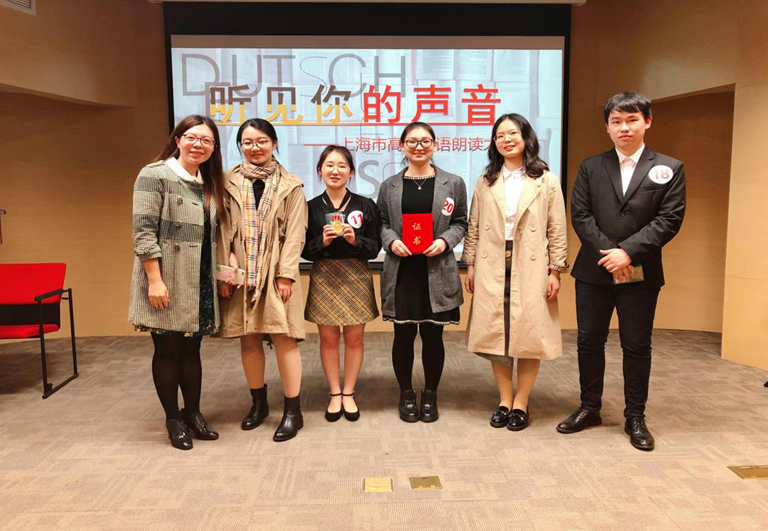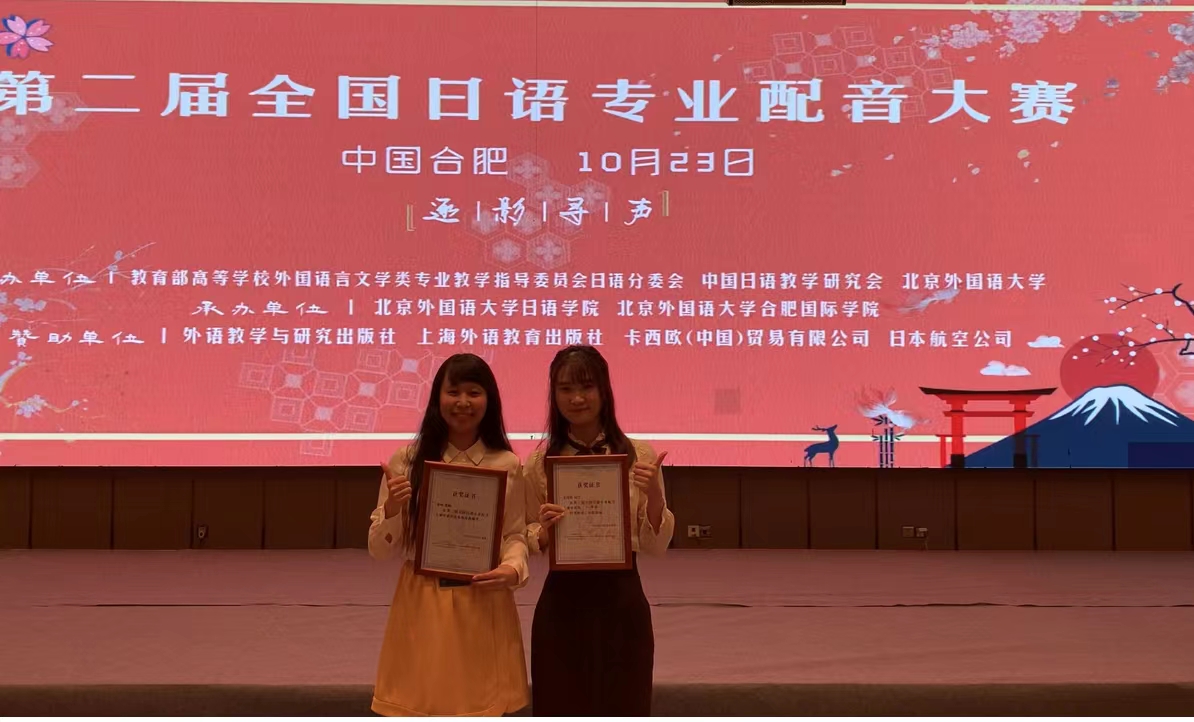Undergraduate Programs

English (Translation for Science and Technology)
English (Translation for Science and Technology) has been awarded Five Stars for program strength by QS Stars and accredited as the First-class Major of Shanghai. It is originated from the major of “Science and Technology English” in 1979, one of the earliest science and technology English majors in China. After 40 years of major construction and development, it has gradually formed an English translation talent training model featuring science and engineering.
Relying on the advantages of the university’s edge in science and technology and the talent training concept of “being engineering-oriented, innovative and internationalized”, English Major (Science and Technology Translation) emphasizes the cultivation of talents by fostering virtue to produce advanced, patriotic English and inter-disciplinary talents with an international vision, solid fundamental English skills, a wide scope of professional knowledge in science and technology, great cross-cultural communication ability, profound humanistic qualities and innovation awareness.
The teachers working in this program have excelled in their areas of expertise. For example, one of the teachers is on the Education Steering Committee, which is part of the Ministry of Education, another teacher was awarded the title of National Baosteel Excellent teacher. There is also a teacher who won the Shanghai Talent-cultivating Award, and another a March 8 Red Flag Bearer of Shanghai. In addition, many young and middle-aged teachers won provincial-level and national-level awards and honors in teaching, and translation contests. There are a few courses that have won awards such “Oral Interpretation for Science and Technology English” has won the excellent course in Shanghai, another four courses include “Science and Technology English Translation” and a few other courses have been assessed as key construction courses of Shanghai; the passing rates of TEM-4 and TEM-8 are 30 percent higher than the average compared with its counterparts in the country. In the last three years, students from this College have obtained over ten provincial-level and national-level innovative and entrepreneurial projects for college students; students have made great achievements at contests in various disciplines.

English (Sino-U.S. Joint Program)
English (Sino-U.S. Joint Program) has been awarded Five Stars for program strength by QS Stars and accredited as the First-class Major of Shanghai. Ever since 1996, the College of Foreign Languages, USST and Queen’s College, CUNY in the United States have jointly organized the English (Sino-U.S. Joint Program) major, a joint education program formally approved by the Ministry of Education. This major is oriented towards International Finance and Trade with its aim to cultivate high-quality and inter-disciplinary English talents with solid English language skills, knowledge of international finance and trade as well as an international vision. Characteristic courses of this major include “Comprehensive English” listed as a First-class Course of Shanghai, and “English Writing” listed as the key construction course of Shanghai. This major has also introduced more than 20 core college courses from Queen’s College, and carried out double degree, exchange students and credit transfer programs with the United States, Australia, Canada, Britain, France, Germany and other countries.
Relying on the entrepreneurship education resources of American colleges and universities, this program explores the internationalized, innovative, entrepreneurial talent training model integrating curriculum construction, innovative practice and competition projects. While strengthening international cooperation, it also emphasizes virtue, cultivation and self-realization, highlighting Chinese characteristics, with a focus on the cultivation of students’ feelings for the homeland, the ability of academic critical thinking, cross-cultural communication, independent learning and social practice. Various foreign language competitions are held every year, and students have won many awards in Shanghai and national college students’ innovation and entrepreneurship projects and disciplinary competitions. This major has carried out school-enterprise cooperation with many enterprises, so students can participate in translation and exhibition internship organized by the College during their study. Some of the graduates have entered the world’s top universities for further studies, some have been recruited by the world’s top 500 enterprises, and some have become enterprise leaders by starting their own businesses.

German
The German Major of USST originated from the major of “German for Science and Technology” in 1979, one of the earliest science and Technology German majors in China. Over the past 40 years, relying on its school-running advantages and the foundation of cooperation with Germany, the College has continuously refined its professional features and formed an international and inter-disciplinary training system for science and technology German talents by seamless connections between undergraduate education and postgraduate education.
This major aims to build a first-class German major with distinctive features in China, adhering to the principle of cultivating people with virtue, patriotism and an international vision, and cultivating socialist builders and successors with a solid German application ability, sci-tech knowledge, economy and trade knowledge, cross-cultural communicative ability, and the all-around development of moral, intellectual, physical, aesthetics and labor education.
This major has developed a curriculum system based on language skills with sci-tech German and economic German as its two wings. Among them, the course “Integrated German” is listed as a High-quality Course, the course “A General Introduction to German-speaking Countries” is approved as a First-class Course of Shanghai, and “Fundamental German Grammar and Vocabulary” is the key construction courses of Shanghai. The teaching quality of this major takes the lead in China, and the passing rate of CET-4 is by far higher than the national average. The teachers and students have won many awards in a variety of competitions like the “Teaching Star” competition, the National German Debate Competition of Colleges and Universities, and the National German Micro-video Competition. This major has also established cooperative relations with many German universities, so all the students on campus have the opportunity to study abroad.

Japanese
Set up in 1993, the USST Japanese major began to enroll undergraduates in 1996. After nearly 30 years of unremitting efforts, it has gradually established and improved its educational orientation, training objectives and training mode of the Japanese major of the university and earned a good reputation in society.
According to the spirit of the new international standards issued by the Ministry of Education and the needs of socio-economic development, the Japanese major is committed to cultivating applied talents with patriotism, international vision, high professional quality and practical ability. Students should have a solid command of Japanese language skills, as well as a knowledge of economy and trade, literature, culture, history, philosophy and other relevant fields. The course of “Selected Readings of Japanese Literature” in this major is now a key construction course in Shanghai City. Lately, a teacher of Japanese came out third at the National Final “Teaching Star” Competition.
The distinctive advantage of this major lies in its emphasis on the integration of professional skills and practical activities, which encourages students to participate in a variety of study and research, course-conducting competitions, social practices and overseas exchange studies. Students have won many awards in the “National Japanese Composition Contest”, “Japanese Speech Contest for College Students”, National Innovation and Entrepreneurship Training Programs for College Students, and the like. This major has also established cooperative relations with many Japanese universities, so students on campus have the opportunity to study abroad.

Postgraduate Programs
Our college attaches great importance to curriculum construction and postgraduate training. In 1984, we began to enroll master’s degree candidates in English for special purposes, and in 2018, we were approved and granted the right to confer first-level master’s degree in foreign languages and literature. At present, there are postgraduate 49 supervisors, and 120 postgraduate candidates are enrolled every year, including academic master’s degree students in foreign linguistics and applied linguistics, foreign literature and translation studies, as well as professional master’s degree students (namely MTI students) in English, Japanese and German.
In recent years, our college has launched a series of new measures for postgraduate students training, constantly improving the quality of postgraduate talents training. Every year, a series of academic lectures are given, whereas the supervisors, the secretary in charge of teaching affairs and the counsellors work together to stress the style of study and emphasize academic competence to create a good academic research atmosphere. It has so far held a series of graduate student academic seminars such as “Academic Community for Postgraduate Students and Supervisors”, “the First College of Foreign Languages USST Postgraduates Academic Forum in 2018---Language Research, Literature, and Culture Communication Against the Background of the Belt and Road Initiative”, and “the 2019 Shanghai Postgraduates Academic Forum---Language Ability and Identity Study from Multidisciplinary Perspectives.” Our postgraduate students also actively participate in academic seminars and academic competitions and publish more than 1.3 academic papers per person every year. The number of awards or prizes won at provincial-level higher surpasses 500 every year. In cooperation with enterprises and institutions, we have established 15 language service and translation practice bases to provide sufficient practice opportunities for postgraduate students. Our college will strengthen interdisciplinary research in medicine, engineering and literature, and promote the development of foreign languages and literature in combination with the new achievements in the field of artificial intelligence, to cultivate high-end foreign language talents in the New Era.